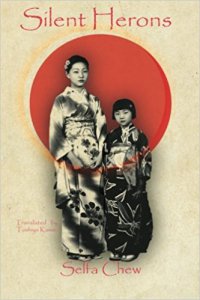On December 7, 1941, a Japanese suicide squadron attacked Pearl Harbor, marking the beginning of the Pacific War against Japan in all fronts. After this event, the U.S. and its military engaged in an unforgiving and furious campaign against Japan, which reached Mexico and hundreds of Mexican citizens. This offensive took place gradually and systematically in the Mexican Republic. Japanese immigrants—and their (Mexican) descendants in Mexico—suffered, as in the United States, the consequences of World War II in various ignominious ways: some families were sent to concentration camps in Mexico City and Guadalajara, while others were destroyed by the selective detention of hundreds of men in the Perote Prison, the forced sale of their property, and deportation. This book gives a partial account of the history and reprehensible treatment of the Japanese-Mexican community during World War II in Mexico. The task of narrating this story is so complex that it is necessary to incorporate interviews, legal documents, police reports, memoirs, poems, and short stories. All names have been changed, and while some situations are fictional, others are told in the first person by those affected to give the reader a human dimension.
The documents that served as the basis for this book can be found at the General Archives of the Nation of Mexico and the National Archives of the United States. However, oral histories are the cornerstone of this text. This story is also the work of Fidelia Takaki de Noriega, Eva Watanabe Matsuo, Rodolfo Nakamura Ortiz, the Tanaka Otsuko family, Raúl Hiromoto Yoshino, María Fujigaki Lechuga, and Susana Kobashi Sánchez, as well as the officials of various government departments who wrote the reports, memos, and certificates that appear in this volume.
“A moving story inserted with primary documents that challenge the official discourse through a chorus of voices that interweave in the life and death of the Japanese-Mexican community, especially its women. Images, poetry, and words disseminate a unique story.” –Lourdes Vázquez, author of Not Myself Without You
"In Silent Herons, Selfa Chew offers us a beautiful, polyphonic testimony, and strikes a balance, thanks to her art, among her own invention, documents, and oral histories. Based on true events, but it doesn't allow itself to be overwhelmed by them, nor does it seek to be a mere reconstruction of the past. The materials have been placed in their places: they are seamlessly intertwined." –Daniel Orizaga, author of Minuta: ensayos sobre literatura
"Selfa Chew searches holiday resorts that were jails for the remains of reality. Silent Herons is a complex work for its literary originality expressed in artistic form and language, and for the weight of events of more than fifty years ago that have rarely been examined." –Minerva Laveaga, executive director of BorderSenses
"Selfa Chew discovers and disseminates the history of the Japanese-Mexican community that has been erased from national historiography in order to fill the empty spaces of our history and reveal the partiality of hegemonic discourses and artifices." –Guadalupe Pérez-Anzaldo, University of Missouri



